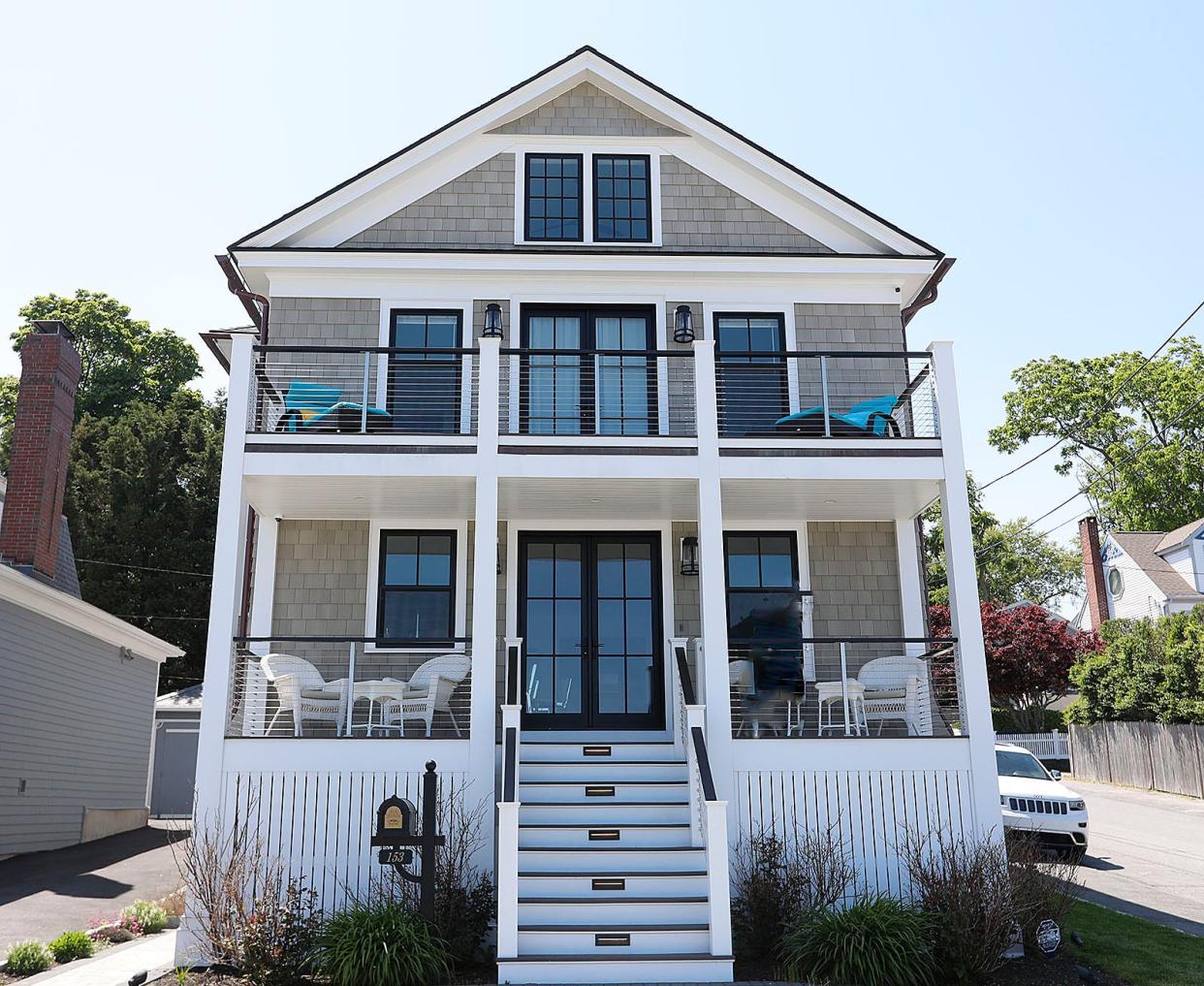Quincy asks judge to stop Airbnb operator from renting out house. Here's what judge said

DEDHAM − A Dedham Superior Court judge said he would decide within a week whether a Quincy Airbnb operator can continue to use his property for short-term rentals.
On Wednesday, Quincy Assistant City Solicitor Janet Petkun asked Judge Mark Hallal for a preliminary injunction against Squantum homeowner Ronen Zangi, who has been using his property at 153 Bayside Road for short-term rentals, allegedly in violation of a city zoning ordinance.
Petkun said Zangi operates a "hotel" in a residential zoning district, where only single-family homes are allowed. The Quincy City Council passed an ordinance barring short-term rentals in residential neighborhoods in March 2021.
In its motion, the city documents 41 separate guest stays at 153 Bayside Road between February 2021 and February 2022.
More: Tenant of Marina Bay luxury apartment files class-action lawsuit: Here's what we know
More: The best beach towns in Mass.? There's a South Shore surprise at No. 2
Described as a "bayside jewel" on Airbnb.com, the home is booked through much of the summer, fetching more than $2,200 a night in mid-July.
“Since Mr. Zangi began his operation, the neighborhood has faced extraordinary disruption from tenants who have no substantial connection to the neighborhood – and conducted themselves accordingly,” Petkun wrote in a court filing in support of the city’s petition for the injunction.
A neighbor said her husband died of a heart attack after confronting renters of Zangi’s home during a loud party last Labor Day weekend. Theresa Repoff, of 24 Orchard St., said her 72-year-old husband, Bill, suffered a fatal heart attack after an altercation with guests at Zangi's house who were shooting off fireworks into the neighborhood. Repoff said she heard people swearing at her husband as he returned home, and that someone threw a beer at him.
Zangi’s lawyer, John Bowen, argued that Quincy must prove “irreparable harm” resulting from Zangi’s short-term rentals to obtain injunctive relief before the court issues a final decision.
While Bowen acknowledged that the city alleges complaints from neighbors, he said the plaintiff hasn’t presented affidavits or specific evidence to the court “touching upon immediate and irreparable harms.”
Bowen argued that the court should not impose a "pre-judgment penalty" against Zangi. Quincy is “attempting to accelerate the relief it would be entitled to only after a successful result on the ultimate merits,” he wrote.
Petkun argued that while Zangi’s short-term rental operation has caused and continues to cause irreparable harm to the neighborhood, the city does not need to meet that standard to obtain the injunction. She said that in cases where a governmental body seeks a preliminary injunction to enforce its laws, it only needs to show the likelihood of success in court, and that the requested order promotes the public interest.
Bowen countered that this standard for a preliminary injunction applies only to state law and not to local ordinances, a claim that Petkun disputed. He said that by ordering Zangi to stop using his property for short-term rentals before the legal process plays out, the court would be “putting the cart before the horse.”
After hearing both sides, Hallal said he would take their arguments under advisement and issue a decision within a week.
“I know it’s an important issue to both sides,” he said.
Thanks to our subscribers, who help make this coverage possible. If you are not a subscriber, please consider supporting quality local journalism with a Patriot Ledger subscription. Here is our latest offer.
Reach Peter Blandino at pblandino@patriotledger.com.
This article originally appeared on The Patriot Ledger: Superior Court judge to decide on Quincy Airbnb short-term rentals

